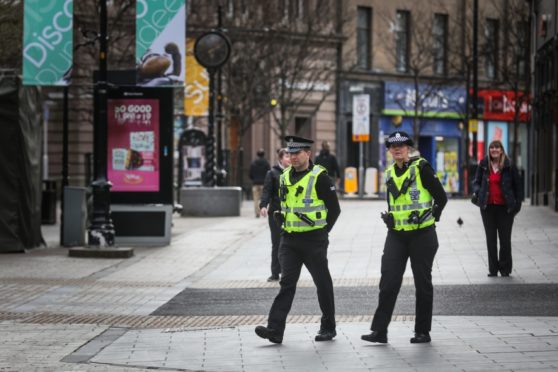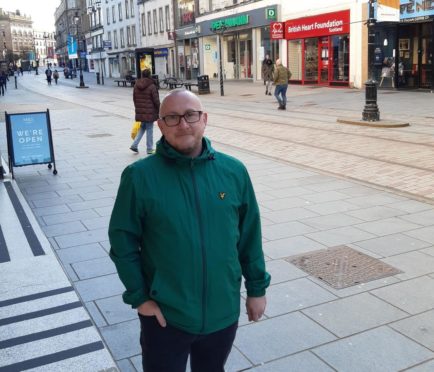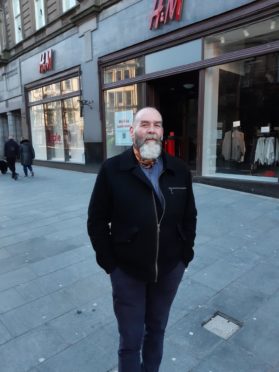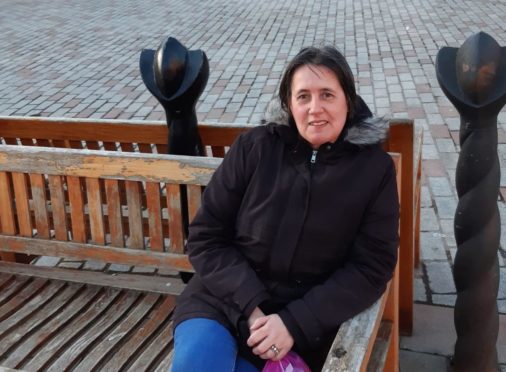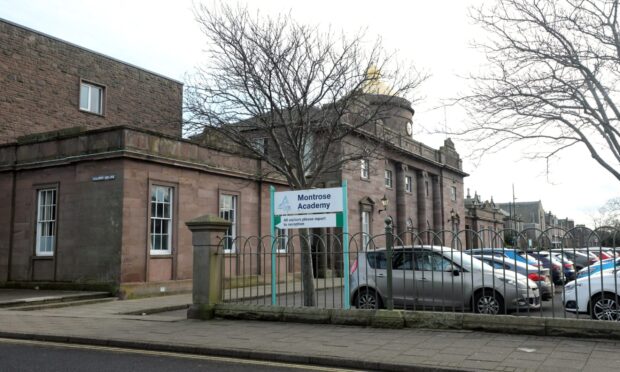Union bosses and members of the public have called on the government to prioritise teachers and police officers in the second phase of the vaccine rollout.
Experts said it would be too complex to identify people based on their occupation and could ultimately cause a delay to the programme.
Over-40s will be prioritised in the second phase of the delivery plan, which is expected to start by mid-April.
EIS general secretary Larry Flanagan said vaccinating teachers would ease safety concerns over crowded classrooms.
He said: “The announcement today, by the UK Joint Committee on Vaccinations and Immunisation (JCVI) recommending that occupational groups should not be prioritised for vaccination, will greatly heighten the concerns of school staff over the safety of working in crowded classrooms without adequate safety mitigations in place.
“The Scottish Government has urged its devolved authority in the past to prioritise the vaccination of other groups of vital workers, such as care home staff, and must now act to ensure all staff in our schools are also protected from Covid risk.
“We want schools to be open and to offer a quality learning environment for our young people – but this must be done safely, with appropriate safety mitigations in place.”
David Baxter, spokesman of the union’s Dundee branch, said teachers did not want to jump the queue, however vaccinations would be a welcome safety tool.
“Staff and teachers are really keen to get kids back in front of them,” he said. “We recognise that the best learning and teaching takes place in the classroom.
“But at the same time we want it to be as safe as possible for ourselves and for the kids.
“We’ve seen what’s happened when there has been a case in schools. It’s really difficult because if you get one positive case, often with self-isolation, you’re taking out whole classrooms, teachers and everyone who has been in contact with them.
“Dundee schools have been good at keeping bubbles and minimising that but one of the things that will make schools safer is vaccinations.
“We’re not asking to get ahead of everyone because we recognise that there are priority groups who are rightly being protected first.
“But it goes along with the lateral flow testing which we’re really pleased has been introduced.
“It’s another tool in making schools safe. It’s not a silver bullet where once staff are vaccinated that social distancing won’t be necessary and masks will be removed, but it’s one of the tools that will help make schools and society a safer place.”
The call to prioritise teachers has been backed by members of the public, such as Dundee resident Robbie Kinmont.
The 39-year-old optician’s dispenser said: “I think that, occupation wise, that is something I’d be looking at.
“People who work with the public should be prioritised, but the fact that they’re so far on now is a good sign.”
Kevin McGinty, 60, agreed that those working in education should recieve their vaccines earlier.
He added: “I don’t think so much for police officers, but certainly for teachers yes.
“I think that they should try and focus on people working in schools – I don’t see how that could make things more difficult.
“I’m sure they have a list of all the teachers and where they work.”
Maria Lesniewicz, a 56-year-old cleaner, said: “I think that it’s a bit silly because teachers are dealing with children all day and the police are dealing with the public.
“There’s more risk there, like if they’re arresting someone and they’re maybe not wearing a mask.
“They should vaccinate as many people as possible, but they need to do the people who need it most first.”
Speaking in response to the publication of the JCVI Phase 2 Guidance, David Hamilton
Chairman of the Scottish Police Federation said: “The JCVI Guidance to not vaccinate Police as a sector is hugely disappointing to Scottish officers.
“Police officers are dealing with increasing non-compliance, increasing community risk
and that is likely to get worse as those who are vaccinated are tempted to not follow
regulations.
“We have spoken with the Cabinet Secretary for Justice and have highlighted that those
frontline officers on which this burden falls is the youngest part of our workforce and also that we are attending calls on behalf of partner agencies whose staff are both vaccinated and homeworking.
“There has been no practical recognition of the risks that Police officers face and we hope that the Scottish Government will consider our submission along with the JCVI guidance in their decision making.
“The police are a 24/7/365 emergency service that is used to providing agile and fast
responses therefore any suggestion then that this would delay the vaccination
programme is misguided. If asked, we could provide 17,000 arms across the country
tomorrow.”
